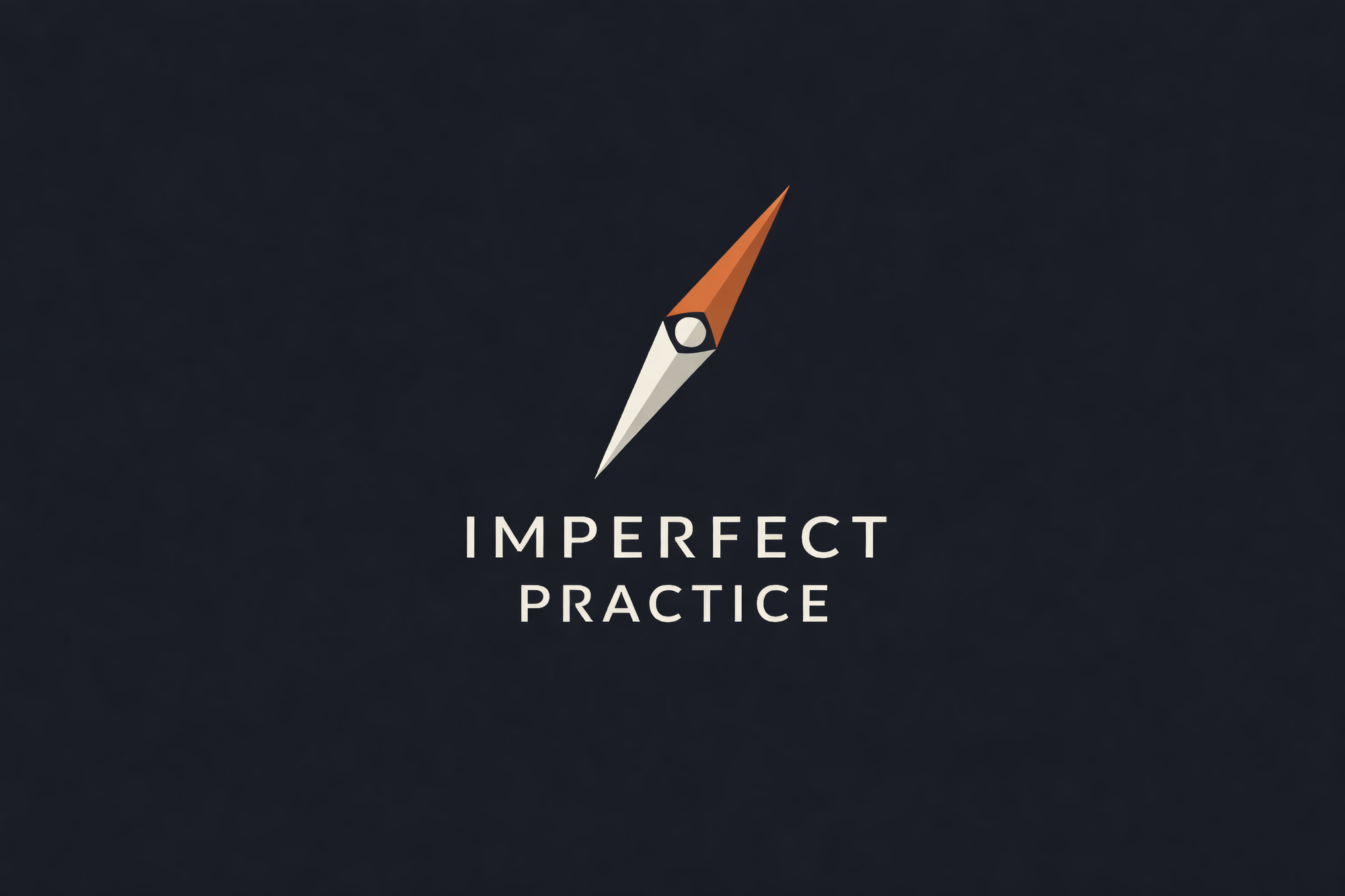Building my Foundation: 30 Days of Habit Tracking
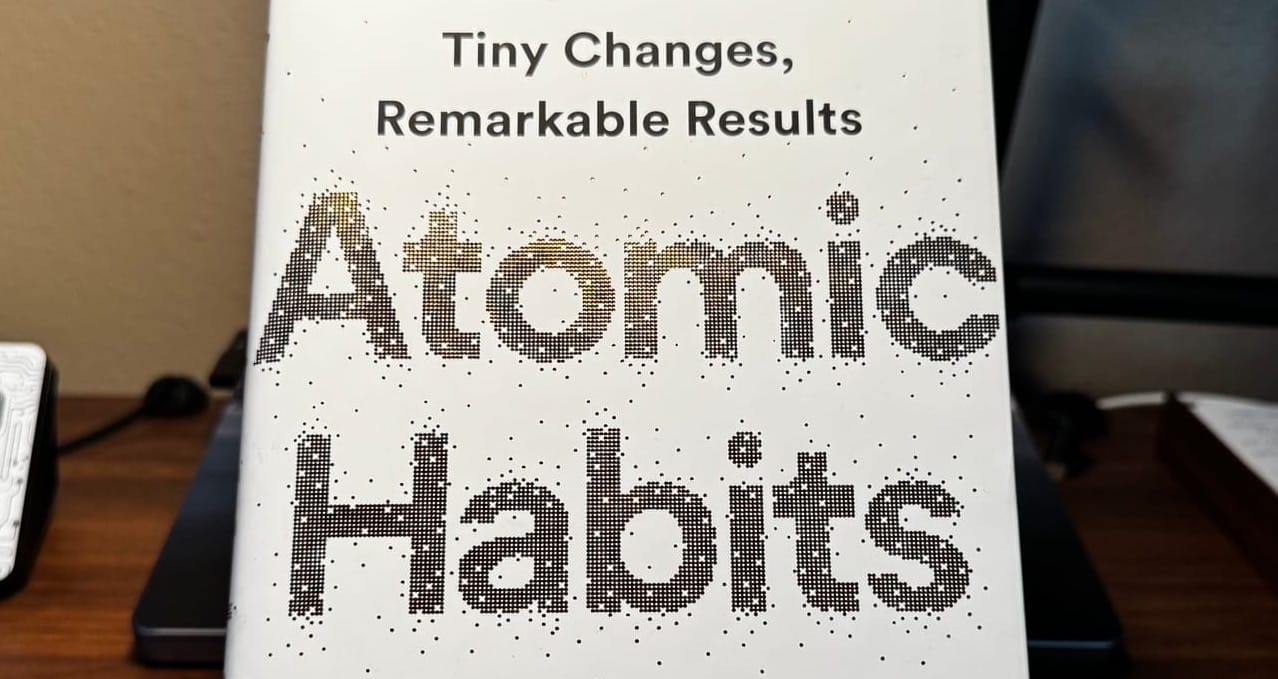
Success is the product of daily habits—not once-in-a-lifetime transformations.
—James Clear, in Atomic Habits
As 2025 was approaching, I felt that I needed to lock in a morning routine. I began exploring all the options to help build a way to track those morning tasks. I messed around with Obsidian and Notion, putting inordinate amounts of time into trying to make it work.
I wrote Dataview queries, dove into Notion formulae, and then walked away frustrated. I'd spent hours tinkering, but still didn't have what I wanted. The juice didn't feel worth the squeeze.
Then it dawned on me. I was trying to build a habit tracker.
And there were dozens of those already on the App Store.
It was some time after these attempts that I read James Clear's book, Atomic Habits. None of it was new to me. But it helped to clarify many of the thoughts that were rolling around in my mind.
I had already recognized the need to develop new habits—habits that would hopefully become automatic actions I would take every morning.
But, just as I find now in my life, my thoughts needed to become action.
I fell down a rabbit hole.
I downloaded just about every habit tracking app I could find. Some, either too simple or too complex, didn't last more than the first launch. Others wanted more money than I was willing to spend without knowing how effective they would be.
Something became extremely obvious.
Habit tracking is a very personal thing.
This shouldn't have been a surprise to me. It was, though. As I launched each app, took a tour through the interface, I could see the needs and wants of each developer coming through. Some wanted very different things from what I did.
The most important realization was this: Our habits are an extension of our personal values, the building blocks of our identities.
True behavior change is identity change.
James Clear, in Atomic Habits
This thought was the key.
Our desire to change our behaviors, our habits, is rooted in a desire to affect our identity. This desire is born out of what we value most. Perhaps we want to change our identity. Maybe we want our actions to be more closely aligned with what we view our identity to be. Our values are at the root of it all.
In my case, I felt the need to both change and strengthen my identity.
I had a vision of how I wanted my day to start. It was a vision inspired by who I wanted to become, as well as who I felt I really was if I stripped away my many flaws. That version of myself had a plan. He woke early (I do that whether I want to or not; might as well make the most of it), had some active time, some reflective time, and made the most of those hours before work intruded on the day.
But distractions hampered me. I wanted to build a routine that would avoid those distractions. A routine that would put me on the right track every morning.
I find myself, again, in this situation. Distracted from the actions that I know I need to be doing.
For a time, I did okay. It wasn't an overwhelming success. I decided to use Strides, one of the habit tracking apps I had downloaded. It was far from perfect, but, for a time, seemed to work in helping me track and form certain habits.
Then I stopped.
There were many reasons. Most of them were just excuses. Part of it, though, was the app. It wasn't clicking for me, but I couldn't put my finger on why. I'd experimented, and it hadn't worked how I'd hoped. Instead of starting a new experiment, I gave up.
And while some of the habits I worked on have stuck with me, many have not.
It's time to try to change that.
I'm introducing my first 30-day challenge.
As I was coming up with my ideas and plans for Imperfect Practice, this idea of personal challenges resonated. There have been a few tools I wanted to try, and this was a perfect reason to do so.
Sometimes, these will be exercises that challenge me. Other times, I will be challenging the tool to see if it works for me.
And often it will be both.
So it is with this first one.
I want to get back on track. I need to establish, or reestablish, some habits that I am certain will be of benefit. But I also want to test some tools.
So let's get to the nuts and bolts of this challenge.
Strides worked, to a degree. But it was the one that I used the most. I want to get back to using it, but it isn't the only tool I am going to be testing.
I've decided to try Habitify and Habit Tracker.
There are a few reasons I chose these apps. First, they are all well-rated in the App Store. I didn't want to try something that was already more likely to be a bad experience. Second, while they all had in-app purchases, these three were very reasonable.
If I am going to test them out, I want to get the full experience.
I will be focusing on the following:
- How much friction is there in setting the app up?
- How is the data presented?
- Are there insights as habits are logged or missed?
- Does the act of tracking offer the needed satisfaction to make the habit stickier?
Finally, all three of these are cross-device. The app is available on the iPhone, iPad as well as the Mac. Why does this matter? Well, to decrease friction in using and tracking, I wanted to ensure that I could access and track my habits in just about any situation.
I also want to see how they display their data on a large screen. It's all part of the test.
The Apps
Strides
As I said, Strides is the app I have some experience with. But I plan to set each of these up from scratch. And, as you will see, their home pages are all fairly similar. That's intentional as well. I don't want there to be much cognitive load in moving between apps.
I want the focus to be on the core experience of using each one, as well as the data they provide.
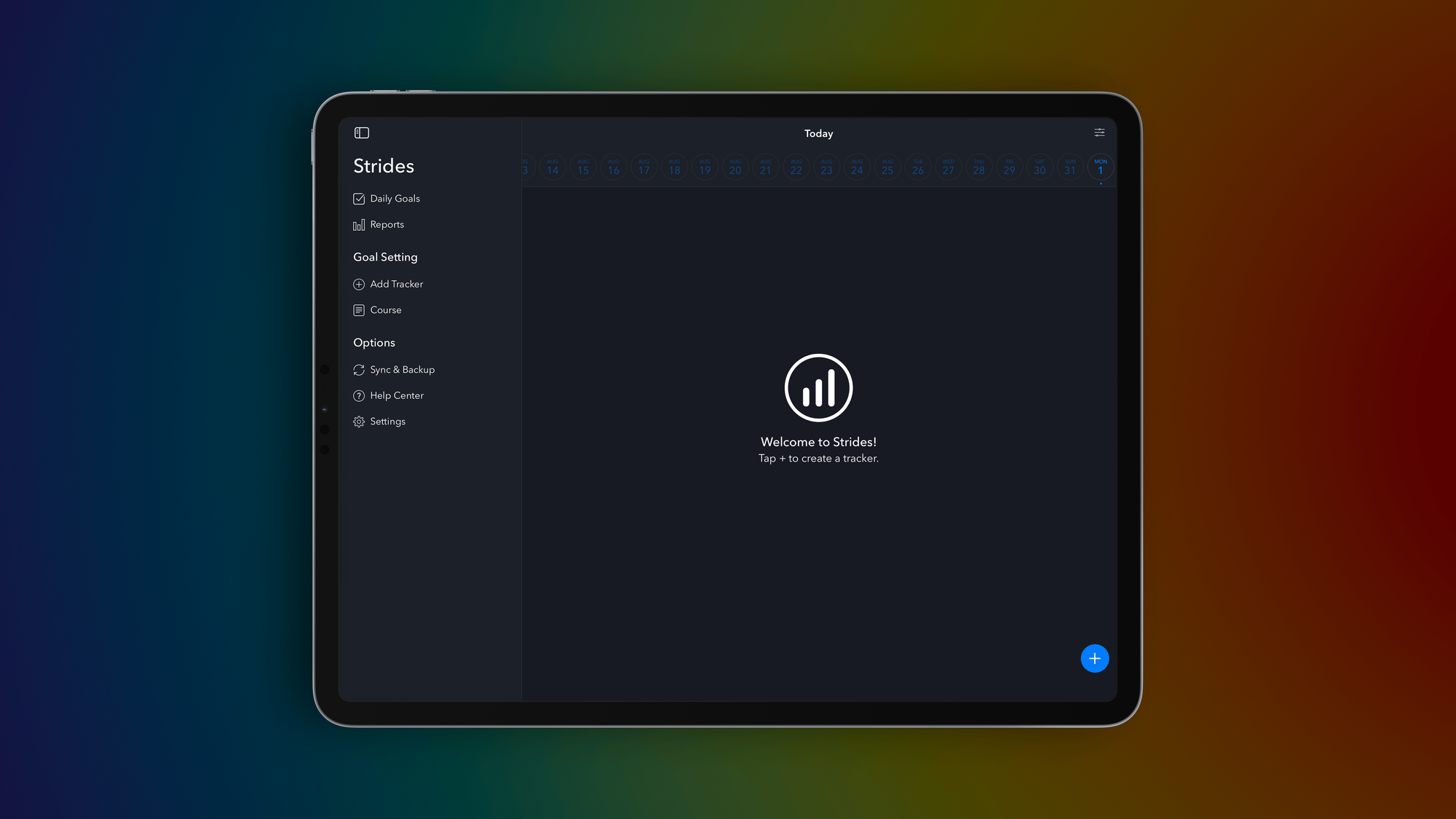
Habit Tracker
I'm trying to get over my initial reaction to Habit Tracker. It is almost too cute for me. But I'm going to focus on the experience of it for these 30 days.
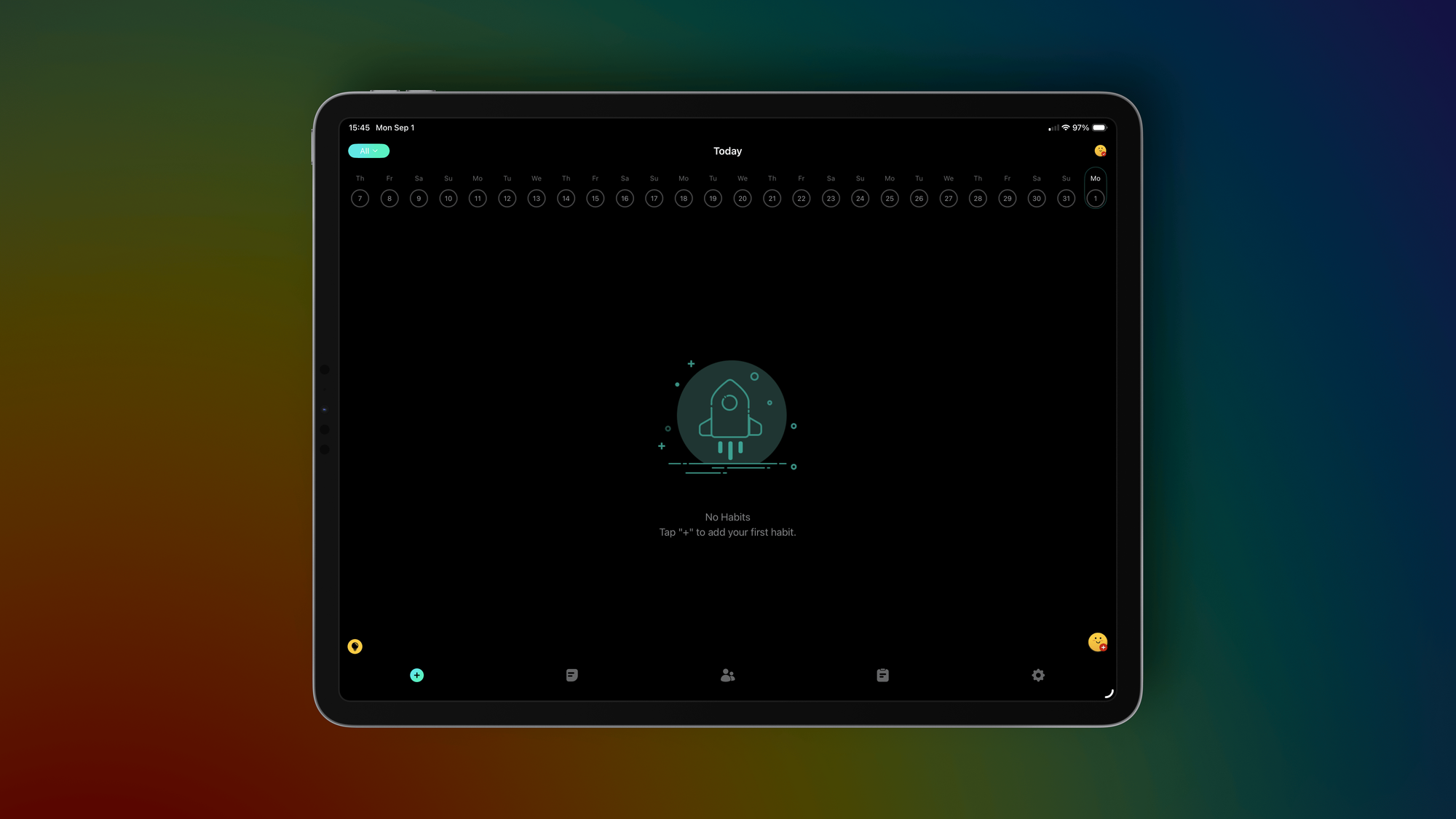
Habitify
Out of the gate, I find myself preferring the default screen of Habitify the most. I'm interested to see what the day-to-day use looks like.
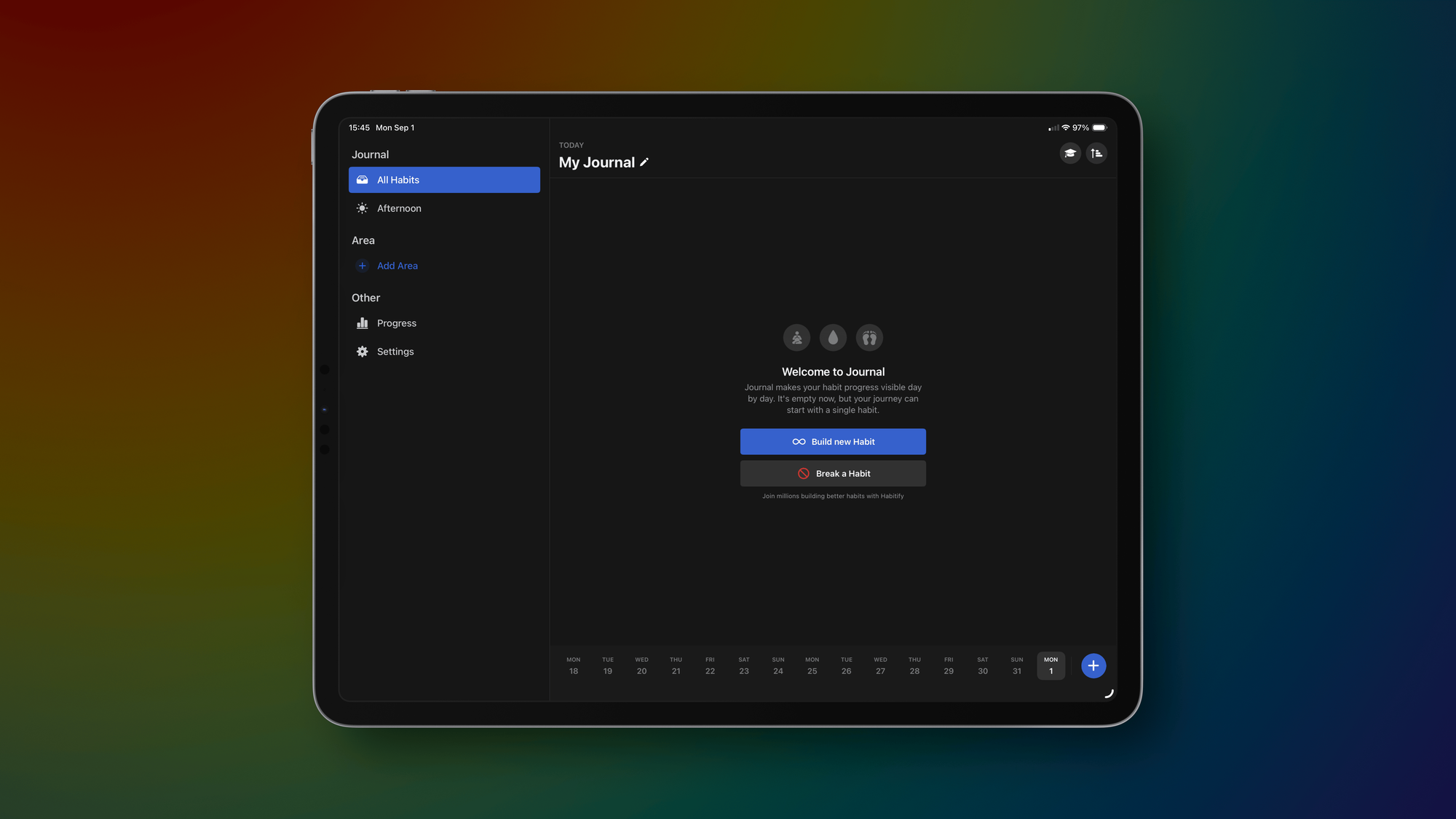
They are all starting from scratch. I will enter the same habits in each, then track my chosen habits across all three applications. I've set up a homescreen page on my devices dedicated to these apps and their widgets.
I'll actually be going through the setup process over on the Imperfect Practice YouTube channel if you'd like a more visual walkthrough of what it's like to set up each app with a new set of habits.
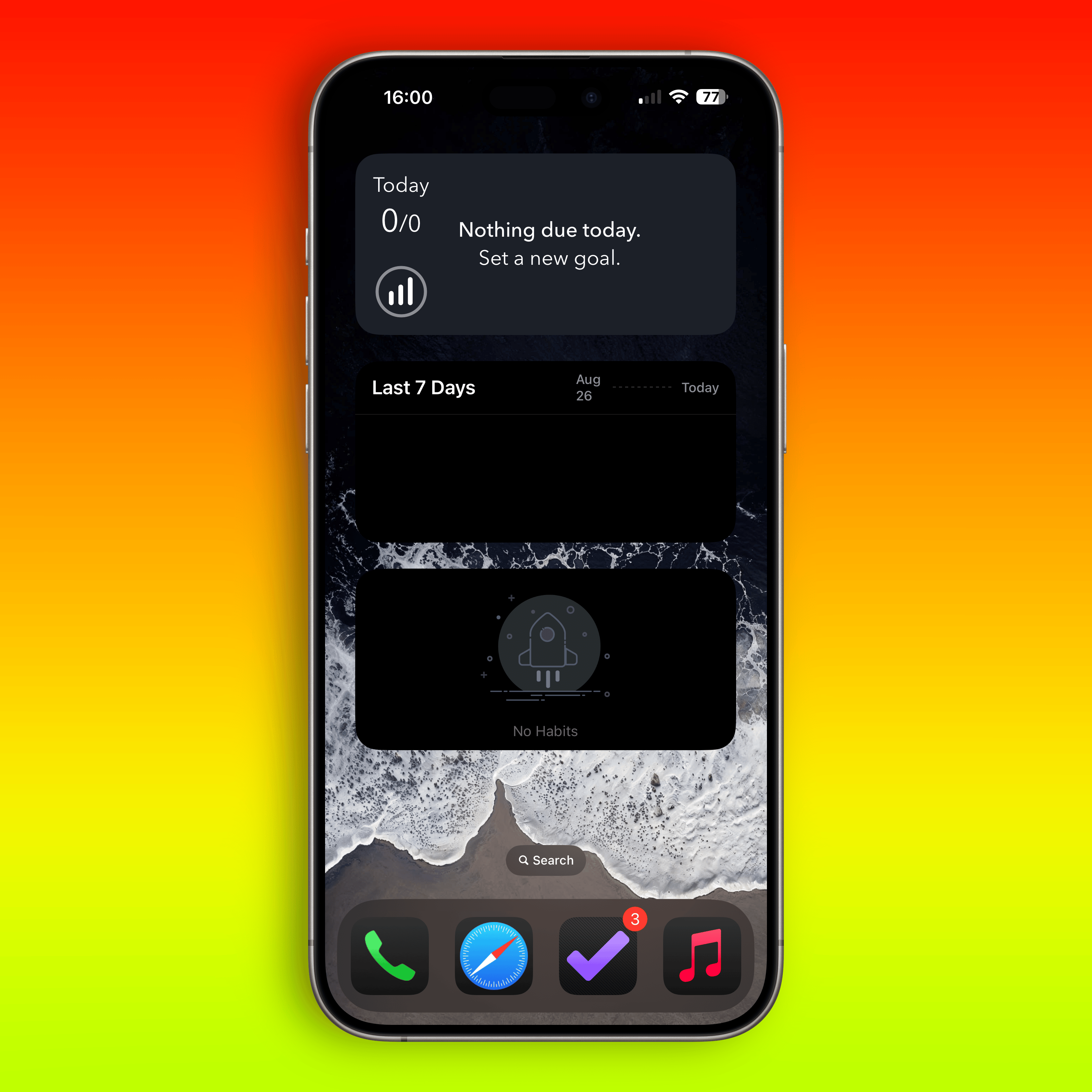
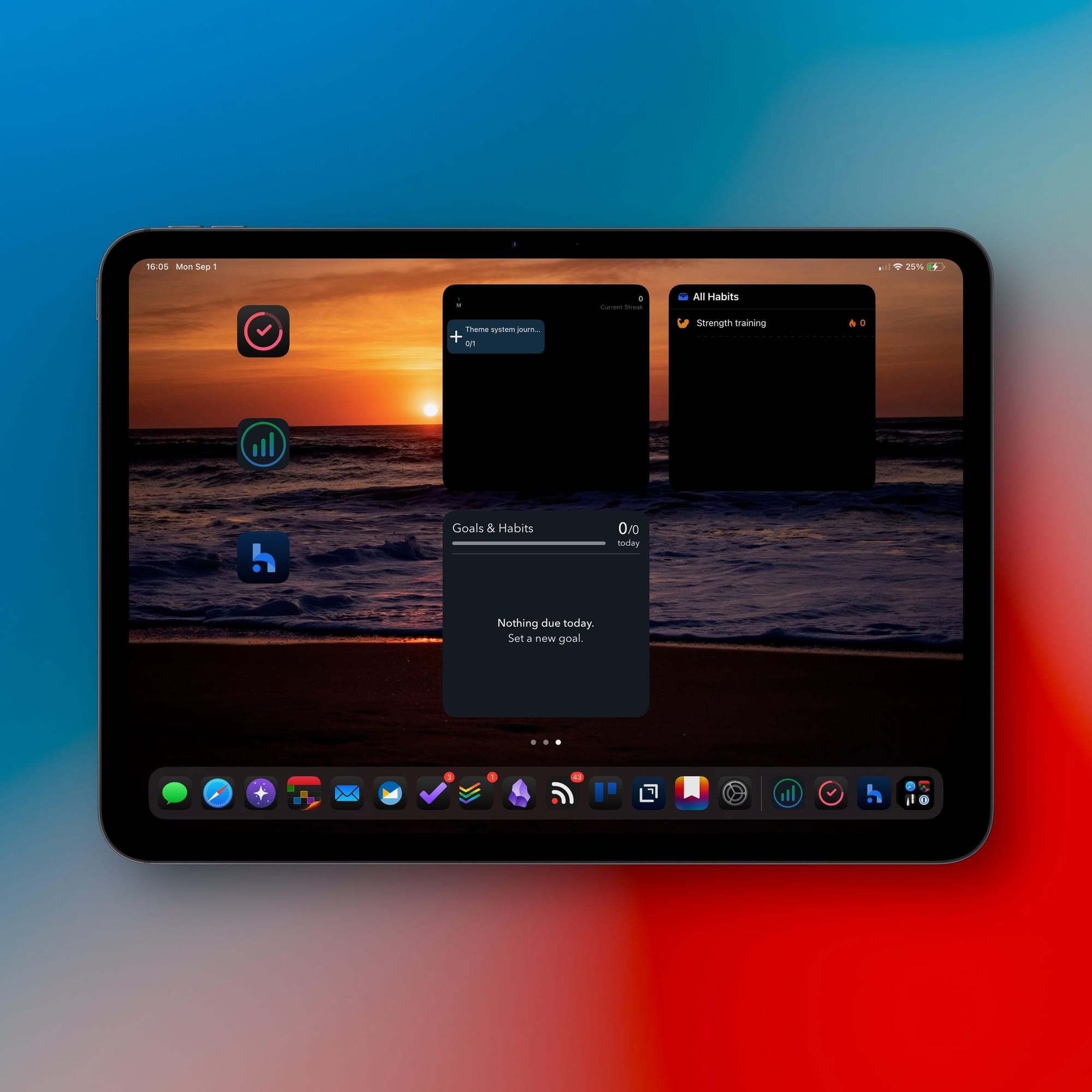
The Habits
Small choices we make have an outsized impact on our lives.
This is what really matters. The apps are just tools. Means to an end. The end is building better habits that will improve my days. My goal is to build a foundation, a solid bedrock on which other actions and habits can be built.
I reflected on habits that I've successfully implemented in the past, as well as some I wanted to really build. But here is the key: all of these are realistic habits.
They are all actions I know that I am capable of doing. Because many of them I've already done, and the others are trivially easy.
Why choose these habits then?
One of the key principles in Atomic Habits is to make the habits easy.
My goal isn't to make drastic changes. My goal is to key in certain behaviors that, taken together, will make each day just a little better. Given that, I have chosen the following:
- Meditate for 10 minutes
- Exercise every day
- 5 servings of fruits and vegetables
- Read a book for at least 10 minutes
- Journal in the evening
Again, none of these are huge changes. Each one is a small habit that I know I can do every day, that will work to get me back on track. Each is also a manifestation of something I value, looking at multiple key areas: health, mindfulness, learning, and reflection.
And for clarity's sake, exercise every day means that I will be doing something that is an intentional workout, including just going for a brisk walk. I don't want to be too prescriptive at this point. It will include weight lifting and other types of exercise.
But the main goal isn't the specifics of what I am doing. The goal is to do the thing—every day.
The Challenge
Have you wanted to track habits, but never gotten around to it? Join me. Choose your own list, track it your way, and commit for the next 30 days.
Small actions. Daily effort. This is where imperfect practice begins.
